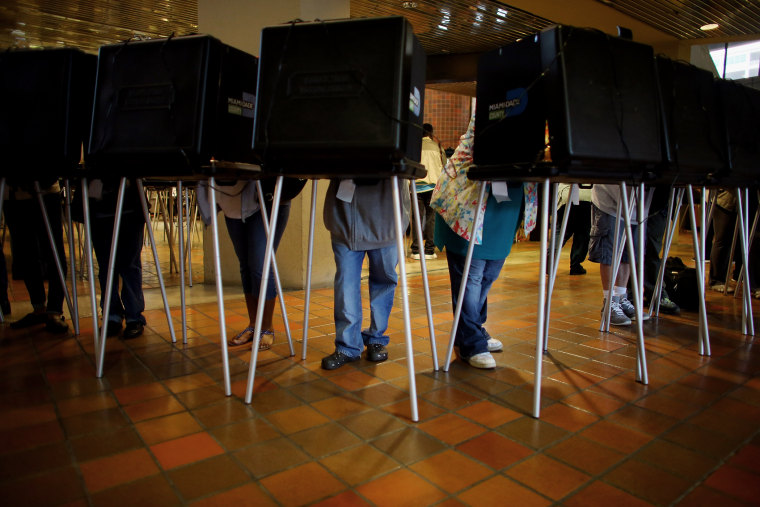Approximately 24,000 transgender citizens do not have the proper identification to comply with certain states’ strict voter ID laws, leaving them vulnerable to significant barriers at the polls and possibly disenfranchisement this November, a new study from the Williams Institute has found.
According to the report, the 10 states where transgender voters stand to face the toughest challenges this election cycle include Alabama, Arkansas, Georgia, Indiana, Kansas, Mississippi, Tennessee, Texas, Virginia, and Wisconsin. Most of those states have passed photo ID requirements -- the strictest kind of voter identification law -- which call for citizens to present a specific type of government-issued photo ID before casting a ballot. For some with gender dysphoria, a condition in which there is a marked difference between a person’s expressed or experienced gender and the gender others would assign him or her, updating state-issued IDs can be prohibitively difficult and costly.
“In 10 states where strict photo ID laws have passed, transgender voters who have transitioned and do not have updated ID will be required to present ID that does not accurately reflect their gender in order to vote,” wrote Dr. Jody Herman, manager of transgender research at the Williams Institute and author of the study. “In those cases, poll workers and election officials may decide that the ID presented does not match the voter, which could result in that vote not being counted.”
Furthermore, found Herman, “[w]hen presenting identification that did not accurately reflect their gender, many transgender respondents reported being harassed (41%), being asked to leave the venue where they presented the identification (15%), and being assaulted or attacked (3%.)” Herman’s research was based on data from the National Transgender Discrimination Survey (NTDS,) which was conducted by the National Gay and Lesbian Task Force and the National Center for Transgender Equality.
Tom Fitton, president of the conservative group Judicial Watch, said the study's findings were overblown.
“Would a transgender person be exempt from showing ID to rent a car, ride on an airplane, or open a bank account?” he told Alabama Watchdog.org, adding that liberals use the voting rights issue to "sow racial and societal division."
Across the country, lawmakers have been cracking down on access to the polls since the 2010 midterm elections, which gave the GOP control of the U.S. House of Representatives and the most state legislative seats since 1928. That effort picked up steam last year when the Supreme Court invalidated a key protection of the 1965 Voting Rights Act, the most successful civil rights law in American history. According to the Brennan Center for Justice, 15 states will see new voting restrictions in place for the 2014 midterm elections, unless ongoing court cases succeed in blocking them.
Of the 10 states called out in the Williams Institute study, legal challenges are pending against voter ID laws in four: Arkansas, Kansas, Texas, and Wisconsin. Unless a judge moves to block them before November, however, and state officials choose not to appeal, those laws will be in effect for the upcoming election.
As in the general population, transgender people of color, youth, students, people with low incomes, and people will disabilities were more likely to not have proper identification documents or records in compliance with strict voting laws, the Williams Institute report found. Georgia, where the Republican secretary of state has launched what looks to be a politically motivated fraud investigation against a group registering black voters, had the highest percentage -- 39% -- of eligible transgender voters with no updated IDs or records.
